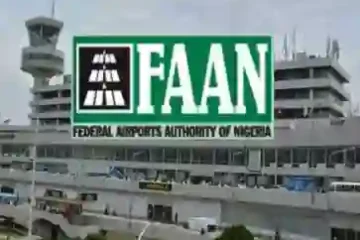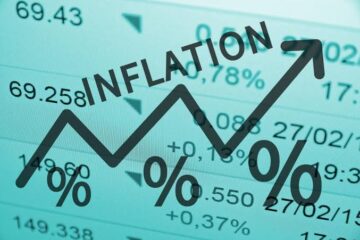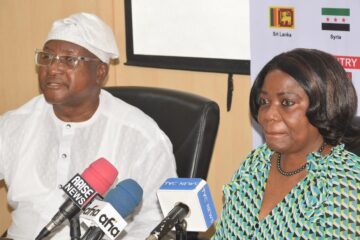FG will save N11trn from subsidy removal, poor Nigerians to lose N5k monthly – World Bank

World Bank
The World Bank has said Nigeria’s government will save a total of N11 trillion from the recent petrol subsidy removal policy.
However, the financial body said more people would be pushed into poverty in Nigeria if the government does not provide palliatives to alleviate the effect of the recently implemented reforms.
In its latest report Nigeria Development Update released on Tuesday, the Bretton Woods institution said over four million people were pushed into poverty between January and May 2023.
The bank, in the report, titled ‘Seizing the Opportunity’, said it was important for the country to implement a comprehensive reform package that encompasses a range of complementary measures, including a new social compact to protect the poor and most vulnerable, to maximise the collective impact on growth, job creation, and poverty reduction.
Since the assumption of the new administration, critical fiscal reforms have been initiated to address macroeconomic imbalances.
The World Bank believes this could be a window of opportunity that could have a transformative impact on the lives of millions of Nigerians and establish a solid foundation for sustainable and inclusive growth.
“The removal of the petrol subsidy and foreign exchange (FX) management reforms are crucial measures to begin to rebuild fiscal space and restore macroeconomic stability, and the opportunity should be seized to take further, necessary policy reform steps.
“In the first part of 2023, Nigeria’s economic growth weakened, and real gross domestic product growth fell from 3.3 percent in 2022 to 2.4 percent year-on-year (y-o-y) in Q1 2023. The challenging global economic context has put pressure on Nigeria’s economy.
“However, domestic policies play a major role in determining Nigeria’s economic performance and resilience to further external shocks. The previous mix of fiscal, monetary, and exchange rate policies, including the naira redesign program, did not deliver the desired improvements in growth, inflation, and economic resilience.
“The new government has recognised the need to chart a new course and has already made a start on critical reforms, such as the elimination of the petrol subsidy and reforms in the FX market.
“With the petrol subsidy removal, the government is projected to achieve fiscal savings of approximately N2 trillion in 2023, equivalent to 0.9 percent of GDP. These savings are expected to reach over N11 trillion by the end of 2025,” the report reads.
The global lender said the recent reforms would have a more direct effect on the poor and vulnerable.
The bank, however, suggested that while policies are being implemented, measures should be put in place to lessen the effect on the poor.
According to the bank, in the immediate term, the removal of the petrol subsidy caused an increase in prices, adversely affecting poor and economically insecure Nigerian households.
“Petrol prices appear to have almost tripled following the subsidy removal,” the report reads.
“The poor and economically insecure households, who directly purchase and use petrol as well as those that indirectly consume petrol, are adversely affected by the price increase. Among the poor and economically insecure, 38 percent own a motorcycle and 23 percent own a generator that depends on petrol. Much more use petrol-dependent transportation.
“The poor and economically insecure households will face an equivalent income loss of N5,700 per month, and without compensation, an additional 7.1 million people will be pushed into poverty.”
According to the World Bank, many newly poor and economically insecure households will likely resort to consequential coping mechanisms, such as “not sending children to school, or not going to the health facilities to seek preventative healthcare or cutting back on nutritious dietary choices.”
The firm, therefore, suggested that “compensating transfers will be essential to help shield the most vulnerable Nigerian households from the initial price impacts of the subsidy reform, as without compensation, many households could be pushed into poverty by higher petrol prices and have to resort to coping mechanisms with long-term adverse consequences”.
“Similarly, the move to harmonise the FX windows will help to improve the efficiency of the FX market, unlock private investment, and reduce inflationary pressures, but it is crucial to complete this important reform by removing FX restrictions, clearly communicating how the new FX regime will operate, and implementing supportive monetary and fiscal policies,” it added.
World Bank country director for Nigeria, Shubham Chaudhuri, said the current move by the government to implement the long-anticipated reforms and efforts to harmonise the multiple FX windows,” are timely and crucial to set Nigeria on the path of economic growth.”
According to Chaudhuri, these reforms should be accompanied by compensatory actions to mitigate the short-term impact on the poor.
“Nigeria should now seize the opportunity to implement a robust, large-scale cash transfer program to provide quick relief to the poor, near poor, as well as low-income households which are most directly affected by higher petrol prices, as part of a broader compact to redirect scarce fiscal resources towards development priorities,” Chaudhuri said.











